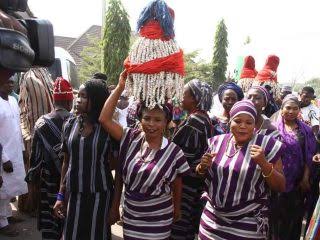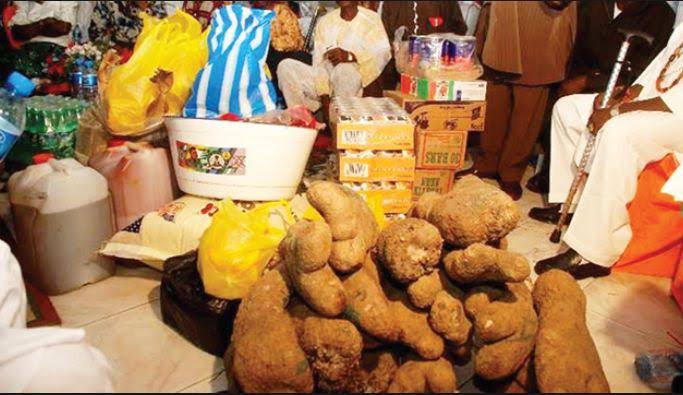Published On 26 May 2022In a Warsaw neighbourhood, the Ryz sisters spend the better part of an hour placing stickers with the numbers of pro-choice organisations [Alessandro Rampazzo]
Warsaw, Poland – On a cold, hazy December morning, the Ryz sisters stand on a sidewalk of a busy street in Warsaw.
“Shall we go to church?” 24-year-old Olympia asks her sister, Melania, grinning and holding up a dozen pink, yellow and grey stickers with the words, “Abortion is OK”, and the hotline numbers and social media profiles of Polish pro-choice organisations.
At the first church they encounter in the residential neighbourhood of Bródno, Olympia, who wears a black woollen cap over her long, blue hair, calmly peels the back off a sticker and sticks it on the gate.
She says they don’t want to anger anyone. “We are just helping Catholic women because they have abortions, too,” she says. “Our goal is to help all the women.”
The sisters are volunteers with the Aborcyjny (Abortion) Dream Team (ADT), a solidarity network supporting Polish women seeking an abortion.
The siblings, both medical students, spend a fair amount of their spare time answering the queries that come to ADT and spreading the numbers of civil society organisations across the Polish capital so that women in the city of about two million know who to contact if they have an unwanted pregnancy.
During the course of an hour, the sisters stroll around, placing stickers on bus stops, walls, streetlamps and a cigarette vending machine.
“A lot of football fans hang out here in Bródno,” says Melania, who is dressed in black like her sister and wears red lipstick and a beanie over her faded, red-dyed hair.
She points to an Ultras sticker on a traffic light pole. In Poland, hardcore football fan groups, or Ultras, often belong to far-right political movements with strong anti-abortion positions, the 25-year-old explains.
Bródno is home to a branch of Ultras supporting the Legia Warszawa football club and Melania, who lives nearby, frequently targets this “very conservative” neighbourhood. Her stickers get torn down, so she puts more up. She covers the Ultras sticker with one of her own. “It’s a fight,” she says.
Soaring abortion requests
Poland's near-total abortion ban went into effect on January 27, 2021, essentially barring women from access to legal abortions [Alessandro Rampazzo]
On October 22, 2020, Poland’s constitutional court ruled abortions for foetal defects were unconstitutional, introducing a near-total ban on terminations.
The ruling de facto barred women from accessing already highly restricted legal abortions. In 2019, 98 percent of the 1,100 legal abortions carried out in Polish hospitals were done so on the grounds of prenatal abnormalities.
The ruling went into effect on January 27, 2021, and abortion is now only permitted when there is a threat to a woman’s life and health, or in cases of rape or incest.
At present, women who have illegal terminations do not face any criminal penalties although a bill has been introduced to consider abortions a homicide.
The court decision came after years of ultra-conservative and ultra-nationalist pressure under the governing Law and Justice party (PiS). Since coming to power in 2015, PiS has repeatedly tried to curb sexual and reproductive rights. In 2016, a proposal supported by elements of the PiS to introduce a total abortion ban was abandoned after mass protests and the party was forced to take a step back.
In recent years, PiS’s grip on society and politics has intensified with the erosion of fundamental rights and unprecedented changes to the country’s judiciary, undermining the rule of law.
Since the near-total abortion ban took hold more than one year ago, terminations have not stopped. Women, unable to rely on the Polish health system, turned to pro-choice groups for help. The number of women contacting these networks seeking abortions has soared, according to activists.
How did this happen?
“More people now know where to get a safe abortion,” says Kinga Jelinska, the executive director of Women Help Women (WHW), an international non-profit providing access to abortion pills, used to terminate an early pregnancy, from abroad via post. While groups like hers know they cannot replace a fully functioning health system, in the absence of one, they have stepped up to help.
"Civil society organisations filled the void left by both the state and Polish medical institutions,” Jelinska says. “It’s the failure of the state, becoming every day more restrictive and repressive, clashing with the story of a grassroots resistance.”
Grassroots resistance
The Ryz sisters always have stickers with the contact details of pro-choice organisations in their pockets [Alessandro Rampazzo]
Immediately after the 2020 ruling, Poland’s pro-choice movement mobilised. The women’s rights movement, the All-Poland Women's Strike - the Ogólnopolski Strajk Kobiet (OSK) - started weeks of demonstrations.
Hundreds of thousands of people took to the streets across the country in numbers not seen since the fall of communism.
“We are present even in very small places in Poland; it's not just a movement about big cities,” says Klementyna Suchanow, a writer and co-organiser of the All-Poland Women's Strike.
Word spread on how to access abortion pills or surgical procedures abroad. There were demonstrations, workshops and online discussions with activists; flyers distributed with the slogan “Abortion is OK”; and the contact details of pro-choice organisations reached new people as activists left stickers in public spaces, supermarkets and transport.
Pan-European initiative Abortion Without Borders (AWB) was in 2021 contacted by nearly 33,000 Polish women seeking abortions, a five-fold increase from the previous year. AWB helped at least 1,500 women access abortions abroad.
WHW in 2021 helped more than 18,000 women access pills from abroad. Since 1997, it has been a punishable offence in Poland to sell abortion pills.
‘You’re not alone’
Olympia (L) and Melania Ryz are both medical students and activists with Abortion Dream Team [Alessandro Rampazzo]
In Melania’s cosy, bright eighth-floor apartment, one cat hops onto the sofa while the second curls up next to the Ryz sisters who drink tea and share a cigarette in the living room. A red-and-white megaphone leans against a table, plants and pro-choice demonstration signs are scattered throughout and an All-Poland Women’s Strike poster hangs at the entrance to the one-bedroom apartment.
The sisters’ phones blink from time to time with messages from women writing to ADT’s Instagram account.
ADT’s volunteers – 13 women and a man all between 23 and 35 years of age – answer questions about how abortion works and how to use pills at home, always referring to World Health Organization guidelines.
ADT connects women requiring pills to Netherlands-based WHW where tablets can be ordered with a donation of 75 euros ($80) or the amount the person can afford. If the person cannot afford a donation, the pills are sent for free. The tablets are mailed directly to the woman’s home in a small, discrete package and arrive within 20 days.
Olympia, who works in a hospital and will become a doctor at the end of this year, wants, like her sister, to specialise in gynaecology. “Why not work and do activism at the same time, I mean as one job?” says Olympia, who considers her activism a “human duty” and access to safe abortion, a basic right. “People need to have access to safe pills and knowledge,” she says.
The women who contact ADT come from different social backgrounds and are of all ages, from teenagers who have just had their first sexual experience to women who already have multiple children. In recent months, some 300 Ukrainian refugees have sought help.
Some of those contacting ADT are survivors of rape. Others have already passed the 12th week of gestation when the pills may not be effective. At this point, they either need to travel abroad for a procedure – ADT connects them to other organisations that can help – or attempt the near-impossible mission of getting an abortion in a Polish public hospital.
Julianna, 19, wrote on the ADT website that she ordered pills after finding out that she was six weeks pregnant. The abortion “hurt (physically) unmercifully. Huge cramps, huge amounts of blood,” she wrote. But after the bleeding stopped, the pain did, too. “I was and am free. I don't regret anything.”
Stories like Julianna’s are increasingly frequent according to ADT volunteers, who also re-direct callers to specialists such as gynaecologists or psychiatrists, and other pro-choice organisations like AWB or Poland’s Federation for Women and Family Planning (FEDERA), which assists with legal and mental health issues.
“We’ll always tell them, ‘You're not alone,’ because this is what they actually need: someone to be with them,” Melania says. “Our mama was a feminist, so that’s how we were brought up with this spirit.” But their activism upsets their much-loved grandmother.
“Our grandmother hates us for what we are doing,” says Olympia with a hint of mischief. “She's praying for us every day because she believes we are killing babies.”
‘Now women will die’
After the 2020 abortion ruling, Katarzyna Kotula, an opposition politician, remembers thinking, “Now women will die …We would only wait for the first name, the first victim, to be all over the media” [Alessandro Rampazzo]
Since abortions have been widely considered taboo in Poland, the subject of surgical abortion has been often poorly taught or ignored in medical school, meaning there is a shortage of doctors trained in terminations, according to Melania who will soon start a five-year specialisation in gynaecology.
Many senior gynaecologists she worked with while rotating departments in a hospital were clueless about how to perform abortions, not having been trained how to operate in the instances when they would be legal.
So the sisters have organised theoretical training with fellow medical students. “Because in universities they won’t teach us how to do it,” says Olympia. The sisters also considering studying in Germany where they believe they’ll receive better gynaecological training.
In Polish hospitals, it’s not just a question of training - many doctors fear performing an abortion.
Anyone found guilty of assisting an illegal abortion faces up to three years in jail and, according to a 1993 law, practitioners can lose their medical licence for up to 10 years.
Activist and ADT co-founder Justyna Wydrzyńska, 47, currently faces a three-year prison term for directly providing abortion pills to a pregnant woman facing domestic abuse.
So far, no doctors have been jailed. Still, hospital personnel, terrified of being accused of assisting an illegal abortion, are scared to navigate the new anti-abortion law because it is not clear when an abortion can be performed.
Immediately after the constitutional court’s 2020 decision, Katarzyna Kotula, an opposition politician, remembers feeling furious and powerless and thinking, “Now women will die …We would only wait for the first name, the first victim, to be all over the media.”
A 30-year-old woman identified as Izabela was first.
In September 2021, in a hospital in the town of Pszczyna in southern Poland, Izabela died of septic shock 22 weeks into her pregnancy. The pregnancy had complications yet doctors refused to perform a life-saving abortion or C-section out of fear of breaking the law as the foetus’ heart was still beating. So, they waited.
“It’s the so-called ‘frozen effect’,” Kotula says. “This creates monsters.”
Then on January 25, Agnieszka T died.
She was admitted to a hospital in the city of Czestochowa on December 21 with abdominal pain, carrying first trimester twins in her womb. Two days later, one twin died. Agnieszka’s health quickly started deteriorating, but doctors waited another week to remove the foetus from the mother’s womb. They only did so when the second twin’s heartbeat stopped. Her family claim she died of septic shock. The hospital has refused to share Agnieszka T’s medical tests on the grounds of confidentiality.
The frozen effect among practitioners is widespread. “The problem is systemic,” says Kotula.
‘A fine line’
Dr Anna Parzińska, a gynaecologist, works at Warsaw’s Bielański Hospital, which has come under fire from anti-abortion politicians and movements and faced government scrutiny as it carries out more abortions than the average facility [Alessandro Rampazzo]
But there are exceptions.
Anna Parzińska, a gynaecologist in her early 40s, works at Warsaw’s Bielański Hospital. It is known nationwide for performing more abortions than the average facility, around 150 to 200 per year, Dr Parzińska says.
The hospital has come under fire from anti-abortion politicians and movements many times. In late December, the hospital was inspected by a government-appointed specialist and asked to provide documents related to approved terminations, among other pregnancy-related data.
“I guess it's because we still perform the abortions,” Dr Parzińska says, referring to the inspection. “But of course, we perform them according to the law and according to medical ethics.”
Dr Parzińska is among the few gynaecologists at Bielanksi willing to perform abortions since the ruling came into effect. “I would say there’s just four of us,” she says, referring to the hospital’s nine specialists. Moreover, she has spoken out about the atmosphere of fear the law creates.
In an interview at her home while she is on maternity leave, Dr Parzińska, whose clear blue eyes held a steady gaze, chose her words carefully.
“I can terminate pregnancies only if they are life-threatening,” she says, sitting on a couch in her living room, her baby girl on her knees.
She is aware that she could end up in jail. “There’s a really fine line between the procedures that are done according to the law and which are not. That’s why no one wants to get involved,” she says.
Most of the women who come to her for an abortion are usually in an advanced state of pregnancy when their prenatal testing has revealed severe foetal abnormalities, she explains.
“[More than] a year ago, in such cases, I could give the woman an opportunity to decide whether she wants to continue her pregnancy or not. Right now, neither she nor I have any options,” Dr Parzińska says. "Because according to a new law we have to continue the pregnancy no matter how bad the foetus’s malformation is.”
Parzińska, who believes a woman should have the right to an abortion, asks her patient how they feel about continuing the pregnancy. If they mention mental health issues or suicidal thoughts, “then I tell her to go to the psychiatrist and come back with a letter.”
Psychiatric grounds for abortion
Dr Herman says it’s her duty as a psychiatrist to help women facing psychological distress due to an unwanted baby access an abortion [Alessandro Rampazzo]
Psychiatrist Maja Herman, tall and elegantly dressed, works in a private clinic in the neighbourhood of Mirów.
Dr Herman believes women have the right to an abortion and, with that right taken away, says it’s her duty as a doctor to help women facing psychological distress due to an unwanted baby access an abortion.
“We medical doctors have to speak loud because, in the crowd, they [the government] will struggle to come after us,” says Dr Herman, who refuses to give in to the fear affecting many medical professionals.
Women wanting to terminate their pregnancy on psychiatric grounds must present the hospital with two documents signed by two different psychiatrists attesting to their life or mental health being at risk. Dr Herman usually signs this document if after an evaluation she deems a pregnancy to threaten her patient’s mental health.
“The most dangerous part of mental health is stress because it can bring to alcoholism, psychosis, and attempts of suicide,” she says, and an unwanted baby is “a continuous and enormous amount of stress”.
Since the ban came into effect, Dr Herman gets at least five more patients a month coming to consult her on abortions.
The more devastated ones, Dr Herman reports, are women who have tried hard to have a baby – many using IVF – and because of severe malformations want to abort since their baby is likely to die soon after being born – in one case, a woman was carrying a foetus without a properly formed brain – or would be seriously physically compromised.
Often, these women are in an advanced stage of pregnancy. Sometimes, they arrive too late and must travel abroad for surgery, or give birth.
Some patients who continued their pregnancies later developed postpartum depression and even more serious mental disorders. Among them was a death by suicide, Dr Herman recalls with pain.
It is inhumane to force a woman to deliver a child that will die upon birth, Dr Herman says, citing what some of her patients have endured.
Even in the worst clinical cases, however, each step to obtain a legal abortion in a Polish public hospital is difficult and tiring. If a woman manages to find two psychiatrists who agree to write a letter, she then needs to find a hospital and doctors willing to perform the abortion.
Sometimes the procedure, which to secure is already a heroic feat, is split between two different hospitals. “It’s a trick doctors do to avoid direct responsibilities,” Dr Herman says.
Some doctors may not even tell their patients when a termination is possible.
Social stigma
A block away from Dr Herman's office, a giant mural depicting a pregnant woman covers the side of a building. It promotes “Divine Mothers”, a programme for pregnant women with cancer that advocates for oncological treatment and pregnancy preservation [Alessandro Rampazzo]
The pressure on doctors, and the bureaucratic difficulties women face, are just the tip of the iceberg.
The sigma of abortion is deeply rooted in society, with the public narrative around it highly influenced by the Polish Catholic Church, which is strongly embedded in Polish culture and politics, due to the historical role it played in shaping the nation.
The Church lent important political and organisational support to Solidarnosc, the Polish trade union, led by Lech Wałęsa, a fervent Catholic and staunch opponent of abortion, who guided the country’s peaceful transition to the modern Polish state after the Soviet Union’s collapse in 1989.
“Every life is holy, and for this reason, it must be protected. No one has the right to end a life artificially,” says Leszek Gesiak, spokesperson of the Polish Episcopal Conference, the Church’s central organisational body.
“The foetus is even invested with the right of inheritance,” says Gesiak, who in an interview at the Conference headquarters in Warsaw does not refer to mothers’ rights until explicitly asked.
“Of course,” he answers. “Mothers have rights, too; the same as the foetuses.”
‘A tool of control’

Ola, who advocates for sexual reproductive rights, says she is still working to overcome the guilt she felt after having an abortion in 2020. “We need a de-medicalisation, de-criminalisation and a de-stigmatisation of abortion," she says [Alessandro Rampazzo]
On the other side of the city, Ola, 24, an independent sex worker, pro-choice activist and podcast host, sits cross-legged on the floor of her bedroom.
“Abortion is [used as a] a tool of control on women by men,” she says. “This is the root of patriarchy, and we need to fight this … having an abortion is an act of revolution and emancipation.”
In October 2020, in the same week as the constitutional tribunal’s ruling and as the streets erupted in protest, Ola took abortion pills. She took a bath – something she later learned she should not have done – and they did not work.
She had been in a new relationship with a man from her hometown near the Poland-Belarus border when she got pregnant. Neither wanted a baby and soon after moving to Warsaw, they broke up. She found a new home and asked some friends and activists to help her find abortion pills a second time and assist her with the process. This time they worked. “I don’t know what I would have done without them,” she says.
Olympia, who sits on the other side of the room, became friends with Ola after they met two years ago in a workshop called Abortion Without Stigma.
“In those weeks,” Olympia says, “anti-abortion posters and billboards haunted Warsaw”. Some depicted baby Jesus, and others newborns saying, “I am dependent on you and I trust you”, she says, recalling the text in her own words.
Ola shakes her ginger-coloured hair. She says she still needs to “de-construct the sense of guilt” Polish society imposed on her. For a long time, she was consumed by shame: “I felt terrible. I kept asking myself whether I had done something wrong … I thought I had become a bad person.”
Still, Ola, who has advocated publicly for sexual reproductive rights, is unequivocal about what needs to change. “We need a de-medicalisation, de-criminalisation and a de-stigmatisation of abortion, and we’ll keep fighting until we reach our goal,” she says.
Threats to activists
But it’s not easy to talk about abortion rights in Poland. For those who do, threats are commonplace.
The FEDERA office is weekly proof of this.
“On today's vandalising menu, we've got pissed upon and smeared in dog poop,” says Antonina Lewandowska, a bright 25-year-old who volunteers at FEDERA.
She points at the door to the organisation’s headquarters. Someone has stuck gum inside one of the locks to make it harder to get into the office, and wrote "to gas", which Lewandoska explains is “a common hate slur, basically means go to the gas chamber, Auschwitz-like vibes”.
FEDERA has been working on a civic draft bill to liberalise access to abortion in Poland to put it on par with Western European standards, which allow terminations until the 12th week of gestation.
FEDERA’s members often receive mail with statements such as, “Abortion is a crime” and “You’ll burn in hell”.
“This is our daily bread,” says Lewandoska wryly.
But they also have received death threats. “I got an email with my picture edited like I'm held at gunpoint, saying I had five days left,” says Lewandowska. Her colleagues received the same message. “Everyone is still alive,” says Lewandowska in a joking way. “But it’s scary.”
Suchanow of the All-Poland Women's Strike has also faced repeated threats.
She has been a key target of anti-abortion groups and the authorities. Suchanow told Al Jazeera that on Christmas eve in 2020, Polish police knocked on her door and entered without a warrant or explanation. It was intimidation, she says.
In her 2020 book, This is War. Women, Fundamentalists, and the New Middle Ages, Suchanow described how religious bodies and ultra-conservative civil movements have, in recent years, become important power structures in the Polish political arena.
Among them, Suchanow says, the think-tank Ordo Iuris is one of the most influential. Established in 2013, Ordo luris was inspired by Tradition, Family, Property, a global ultra-Catholic movement that has been accused of being a cult. Increasingly, conservative parties like PiS rely on Ordo luris for their policies, specifically those that are anti-abortion, anti-contraception, and that have to do with banning sex education in schools and the “preservation” of heterosexual marriage.
Ordo Iuris’ members currently hold key positions in Polish state institutions. For example, Aleksander Stępkowski, one of Ordo Iuris’ founders and its former president, is now the spokesperson of the Polish supreme court. Previously, he was the deputy minister of foreign affairs and in 2019, the government nominated him to be a judge at the European Court of Human Rights.
Push to register pregnant women
People walk in central Warsaw. In November 2021 in the capital and in many other cities took place huge demonstrations after the death of Iza, a 32 years old woman who perished for septicaemia while waiting for her foetus to die before receiving an abortion
In late 2021 a proposal was published to introduce an official registry of all pregnant women in the country that would also force doctors to report their patients’ pregnancies and miscarriages [Alessandro Rampazzo]
In 2016, Ordo luris, with the support of elements of the Polish Catholic Church and PiS, proposed a total abortion ban and imprisonment for any woman who had an abortion. Pro-choice demonstrations filled Warsaw’s streets, and the law did not pass.
However, another proposal pushed by Ordo Iuris in 2017 passed: up to three years’ imprisonment for carrying out or assisting an illegal abortion.
In December 2021, on the wave of the same initiative, the Sejm - the lower house of parliament - voted again on criminalising women, including with life imprisonment. The law did not pass.
But pro-choice organisations fear that this draft bill will be making its way back. Especially because the Polish health ministry in November 2021 published a proposal to introduce an official registry of all pregnant women in the country that would also force doctors to report all their patients’ pregnancies and miscarriages.
Nikodem Bernaciak, 27, analyst for the legal analysis centre Ordo Iuris. Ordo Iuris is a very conservative organisation with connections in the Polish political and legal environment. This institution lobbied the government heavily to pass the anti-abortion law
"We would like to give Polish judges this possibility to punish women committing abortion," says Nikodem Bernaciac, a trainee attorney with Ordo luris [Alessandro Rampazzo]
On the eighth floor of Warsaw’s historic PAST-a building, the skyscraper symbol of the city’s 1944 uprising against Nazi occupation, a glass door displaying a giant golden lion welcomes visitors to the Ordo Iuris headquarters.
Nikodem Bernaciac, 27, a trainee attorney, described the institute’s vision: “You can't sacrifice an innocent child for some ‘bad mood’, that may last for weeks or months.”
That is why, he explained, “We would like to give Polish judges this possibility to punish women committing abortion,” because, “Now there is some kind of automatism according to which every woman who committed abortion is automatically innocent.”
There are some women, he says, who might need to abort. “Of course, they can decide to kill their babies to save their own life, they have the choice,” but there are also other “types of women”, he states, who should be punished. “The women that make political declarations about their abortion.”
'Abortion was the only option'
Hania Zagula, 28, is a young activist for human rights and particularly active with LGBTQ+ people’s rights
Activist Hania Zagulska, 30, says it's hard to speak publically about abortion but she is determined to continue as she sees it as a crucial step toward lifting the stigma of abortion [Alessandro Rampazzo]
In her apartment in eastern Warsaw, Hania Zagulska, 30, an activist who works as a cleaner, prepares some coffee. She still remembers the stigma she experienced when she had an abortion eight years ago.
“I had lived my whole life in a small town,” Hania recalls of her upbringing in Szamotuły in western Poland. “I had no information about abortion at that time.”
At 22, she became pregnant. The man who got her pregnant left and she could not tell her conservative family. She was on her own. “Abortion was the only option to save my life,” she says. “Being a mother at 22 wasn’t the future I wanted for myself.”
Having never received sex education, she did not know what to do, so she searched online. On a forum called Women on Web, she found information on how to buy and take abortion pills. She asked five of her closest friends from school to help collect money and buy the tablets. The first time, the pills went missing. Hania thinks they were intercepted by the police. She tried again with a new address and succeeded.
The day she took the pills, she went to her best friend’s place to watch a movie and tried to relax. “I was really nervous, but nothing bad happened that day.” But a week later, she had heavy bleeding, which scared her, so she went to the doctor, prepared to say what many others say when they take abortion pills: “I’ve lost the baby.”
At the clinic, the doctor kept pushing her to confess she had taken pills. “He tried to scare me,” she says. “The doctor then told me I was pregnant anyways and called an ambulance to take me to the hospital against my will,” remembers Hania. “I was very afraid the pills didn't work.”
But other women heard the conversation, and when Hania went into the waiting room while the ambulance was on its way, they gave her courage, saying, “Child, you are so young, you have your whole life before you."
Hania was forced to stay in the hospital for four days. She recalls the medical personnel telling her she was pregnant, probably to punish her, Hania thinks, even if she wasn’t as she realised later the pills had worked. The only way to leave the hospital was to call her father who, when he saw Hania lying in her hospital bed, was angry and disdainful.
For a long time, Hania told no one about her abortion. Then one day she and two friends got talking and discovered they’d all had an abortion. Hania was relieved to know other women had similar experiences and she felt less lonely. It got her thinking: This stigma had to end. It affected her and her friends – it must affect so many other women. Watching a TED Talk with a feminist talking about creating safe spaces for women to share their lived experiences was the push she needed. If she shared her story, maybe others would start speaking about their own and start a bigger discussion for change.
Hania spoke about her abortion in December 2020 on Stonewall TV, a sex education YouTube channel with an LGBT+ perspective, in an episode titled, Aborcja jest ok! (Abortion is OK).
She did not think that the reaction would be so intense. The video of her interview on Stonewall TV went viral. Pro-government journalists dug into her past to undermine her reputation and she was harassed online. She was called names, misinterpreted, and faced online abuse on Twitter, as well as threats of rape and acid attacks. In January, after consulting a psychologist, she deleted her account.
“It was hard, and it is still hard,” Hania says. But she knows that speaking publicly is a step toward lifting the stigma of abortion and moving towards its legalisation. “So I keep going.”
Starting to talk
Olimpia and Melania live in Warsaw outskirts and in their free time they do different kinds of activism, both in the area and around town
The Ryz sisters say that in the past year, pro-choice voices have gotten louder [Alessandro Rampazzo]
It is around lunchtime back in Melania’s apartment, and the Ryz sisters sit on the couch drinking black tea, the faint sounds of the motorway audible in the background.
The abortion ban was devastating for women, Olympia says, but she feels attitudes have changed for the better in the past year. “People started to talk about abortion,” she says.
University students have started voicing their support for abortion, Melania says, and they ask her for stickers to put around campus and the city.
Both sisters believe this change in conversation will help spread more knowledge within society, and that this will be essential to fight new restrictions, which they are bracing for. By arming themselves with knowledge, women can take control of their bodies, Olympia says. “They can be free from any government.”
Correction May 26, 2022: This article originally said Hania's surname is Zagula. It is Zagulska.
Culled, al-jazeera.com
















